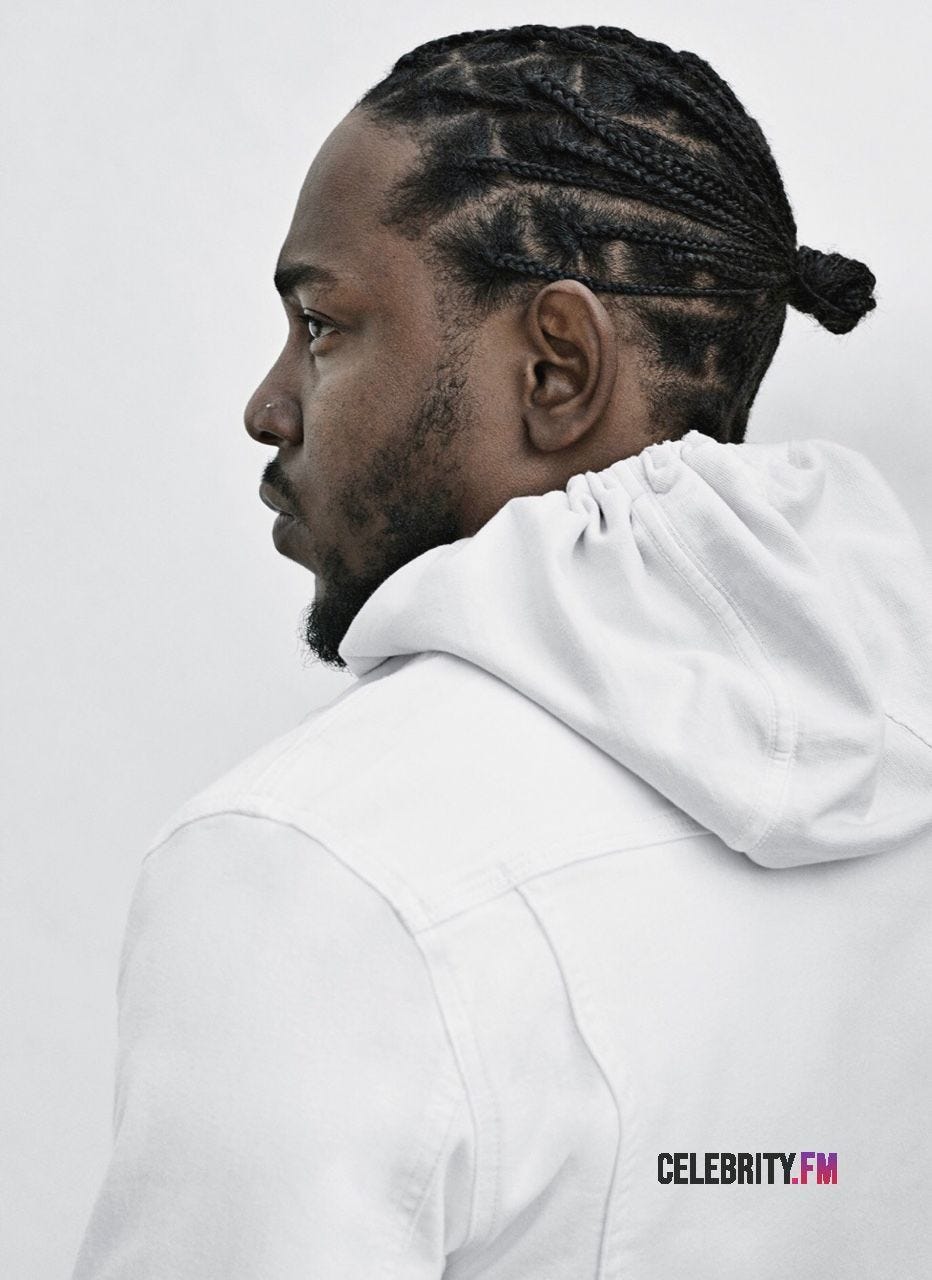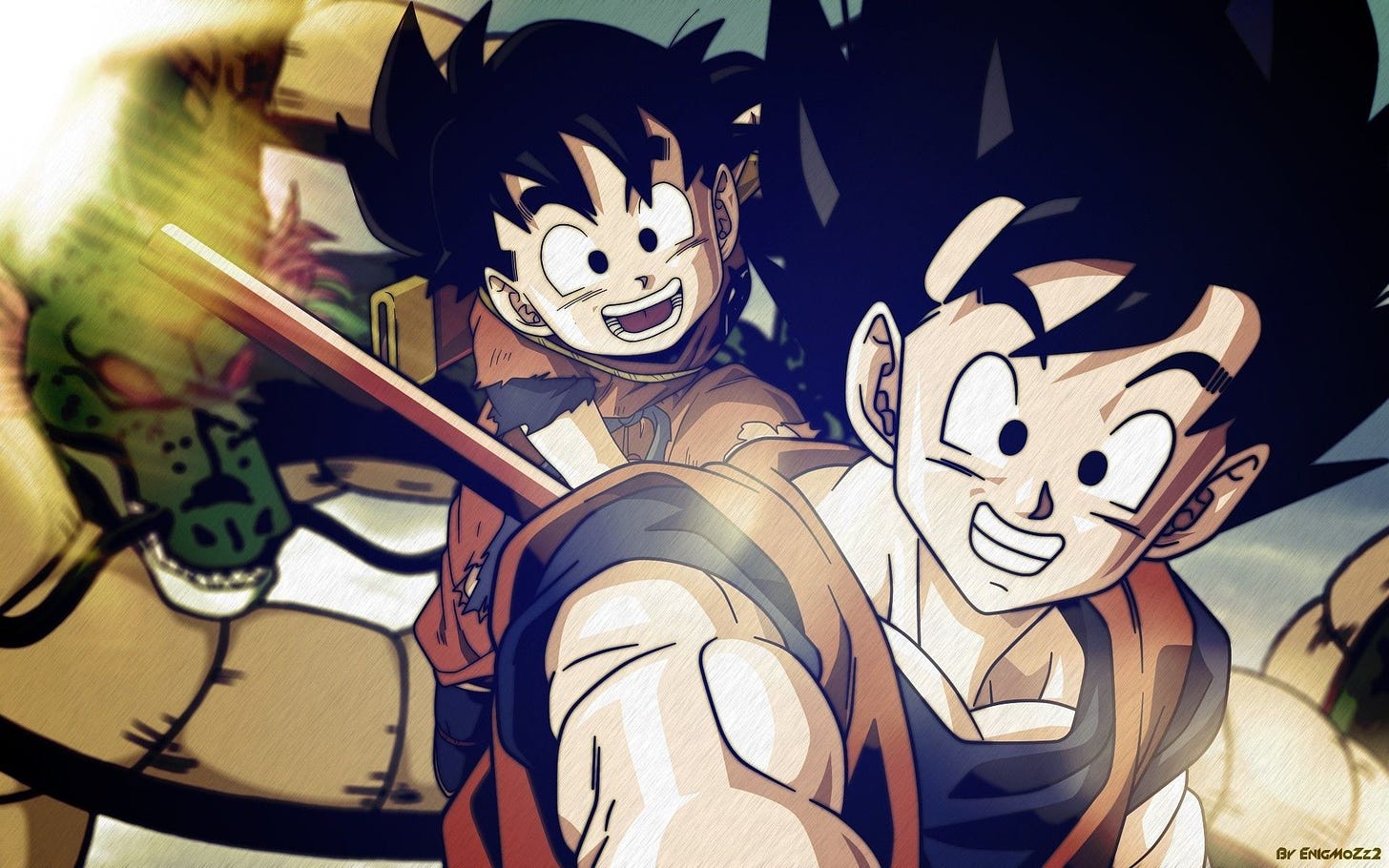Most people around my age are at least familiar with Dragon Ball Z, it tells the story of an ultra-powerful young man named Goku from a distant planet and a race of beings known as Sayans. Goku never met a challenge he could not overcome, not even death itself. Growing up, most of us watching the show would try to imitate his iconic moves and dream of being anywhere near as strong as our hero. Many of us dreamed of that power when the show introduced a son for Goku named Gohan, and kids like me saw him as an avatar to live through. We imagined him as an in-world character that could one day surpass our hero and show that we could also achieve the things many thoughts were impossible for us. Unfortunately, Gohan wasn’t like Goku, he was sensitive, he didn’t like conflict, and ultimately over the course of the show he chose to turn away from the responsibilities placed upon him at birth. The thing about this was Gohan always seemed happier when he was just allowed to be himself and find pleasure in things he enjoyed, without the looming expectations to be his dad or live up to his so-called potential. What seemed like a let down for me and for many others at a young age has reappeared in a different context years later, in the form of a new track from Kendrick Lamar, the poetically named “Father Time”.
For 5 years Kendrick Lamar was completely absent as an artist. Sending his fans and media into speculation and spirals about his possible retirement, he loomed large on the collective mind of hip-hop. What sat in his mind seems to be a nearly unfathomable level of turmoil that only drove him further away from his artistry. After that long wait and after Kendrick seems to have worked through the worst of his issues we get “Mr.Morale and The Big Steppers”, an album that speaks on many topics from the concept of celebrity, Black trauma, abuse, and much more. Each track seeks to detail specific problems that Kendrick himself faced and problems that he believes are affecting and holding down people all over. What seemed to me to be a central theme of the album is the concept of expectation. Lamar opined on this idea in many tracks on this project including the aforementioned “Father Time”. This song dives into some of the worst aspects of growing up with the aspirations of becoming a man in the current sense of the word. Each line of this song strikes at the core problem that engulfs so much of what it means to be a man. Lyrics like “this the part, he breaks my humility just for practice” or “Lookin' for, I love you, rarely empathizin' for my relief” shows that the level to which this problem has been considered and pondered over. Recognizing that you need more love than you’ve gotten from a parent shows that the sensitivity he thought had been forcibly removed from him exists underneath years of emotional scar tissue.
These expectations of manhood he speaks of flow past just the interpersonal problems of dealing with detrimental parenting intended on making a young boy tough, they are also seen in Kendrick as a celebrity and cultural figure. With each album being seen as a transformative piece of art, it is very easy to see Kendrick wanting to fight back against the status he holds. The thought of your every move and of your work being thought to have some great untold truth or generational genius is enough to break someone on its own. This, along with his West Coast heritage that garners comparison with giants like Tupac (who serves as his own personal Goku) leaves the Compton rapper with little choice but to retreat from it all. To ease his mind, Kendrick falls back on the behaviors described in ”Father Time”. The nonchalant coldness drives him to the point where he begins to see the flaws in himself as virtues until he manages to actually heal.
The flaws he describes are ones that he believes to be common among people from environments like his, and throughout the album, we see the comparisons he draws to himself being a bit more unexpected. Namely, what he sees of himself in Kodak Black. Kendrick uses Kodak as an example of someone else created by the same conditions as him and damaged by them. While most of the correlations Kendrick makes are correct (both his and Kodak’s outlooks being shaped by violence and unimaginable pain) this one misses the mark because the same level of honesty that Lamar achieves on this album is not even attempted by Kodak. This ends up leaving the victim of Kodak’s alleged abuse as just an afterthought. I understand the intention in saying it is time to heal, but that healing can not start with, or only be afforded to abusers. Though the larger point of “Father Time” and the album as a whole still stands, men and Black men in particular need to heal for the sake of the women that have had their lives shattered by emotionally unavailable and violent men.
For 5 years Kendrick Lamar lived in a vacuum, surrounded by his past and drowning in his mistakes. Unable to be the father or partner he wanted to be, held back by the damaging teachings of people he loves and cherishes, a spot that I and many are familiar with. When your life is lived in comparison to beings who seem all-powerful or all-knowing, your own thoughts and feelings can end up jailed in the back of your mind with whatever innocence was beaten out of you. It takes a true amount of courage and strength to not just admit your issues, but to realize they don’t have to define you as long as you take the time that is necessary to make more of the full-fledged person you were always meant to be. Somewhere inside of all of us, there is that wide-eyed kid that thinks if they just strain hard enough they can also become Sayans. What it seems like Kendrick would like to tell that child inside of us, is that there will never be any power greater than truly controlling and coping with our emotions. Maybe one of these days we will get to look around and see a generational curse lifted, a people healed, and many more grown men without daddy issues.





